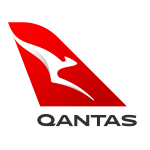 Continued strong travel demand across domestic and international has driven further reductions in the Qantas Group’s net debt to well below pre-COVID levels.
Continued strong travel demand across domestic and international has driven further reductions in the Qantas Group’s net debt to well below pre-COVID levels.
After peaking at more than $6.4 billion at the height of the pandemic, net debt is expected to fall to around $4.0 billion by 30 June 2022. This is an improvement of around $1.5 billion in the past six months.
The Group has updated its net debt target range – a key part of its financial framework – to be between $4.2 billion and $5.2 billion.
While the Group still forecasts a significant full-year Underlying EBIT loss for FY22 that includes the worst of the Delta and Omicron impacts as well as restart costs, the business remains on track for 2H22 Underlying EBITDA of between $450 million to $550 million. The Group is also on track to return to Underlying profit in FY23.
July peak preparations
The Qantas Group sincerely thanks customers for their patience and understanding while the airline works through what has been a challenging restart for the industry globally.
The Group is working with industry partners to improve the travel experience during the upcoming school holiday peak. While a tight labour market and COVID-related impacts persist, there will be a 15 per cent increase in ground handling staff compared with the Easter holidays and airports are increasing their security screening resources.
Since April, Qantas and Jetstar have recruited more than 1,000 operational team members and hundreds of additional contact centre staff have slashed average call wait times. Qantas will have 20 per cent more team members on standby to minimise any impact of sick leave.
Qantas has made schedule adjustments to better spread peak times and will have two widebody aircraft on reserve to assist if required. The airline is rolling out new check-in and baggage kiosks, starting in Sydney, to speed up customers’ journeys.
Recovery boost for employees
Up to 19,000 EBA-covered employees across the Qantas Group will be offered a $5,000 boost as the national carrier shares the benefits of its recovery.
The payment will be made to employees once a new enterprise agreement covering them is finalised. Nine agreements covering some 4,000 employees have been finalised already and will be paid shortly. Consistent with previous discretionary payments, eligibility conditions will apply.
This follows a two-year wage freeze and comes on top of two per cent annual pay increases that are currently being negotiated across the Group.
The cost of the recovery boost to the Group is estimated at around $87 million in FY22.
Adjusting capacity in response to fuel prices
The Qantas Group is adjusting its domestic capacity levels for much of FY23 to assist with the recovery of sustained high fuel prices.
For July and August, an additional 5 percentage points of capacity will be removed on top of the 10 per cent announced in May. This total 15 per cent cut will also be applied to September. A cut of 10 percentage points will be applied to schedules from October through to the end of March 2023.
This brings the Group’s planned domestic flying down to 106 per cent of pre-COVID levels for the second quarter of FY23 and 110 per cent for the third quarter.
These reductions, combined with robust international and domestic travel demand, are expected to help the Group substantially recover the elevated cost of fuel indicated by forwarding oil prices. They will also assist with the near-term resourcing pressures currently being felt across aviation and the broader economy.
The customer impacts from these schedule changes are expected to be minimal, with capacity being removed mostly from high-frequency routes. Those affected will be contacted directly with alternatives as close as possible to their original timing, usually within 1-2 hours. Many of these adjustments have already been made with the remainder to flow through in the coming days.
There are no changes to the Group’s international capacity plans, with flying steadily increasing from around 50 per cent of pre-COVID levels currently to around 70 per cent by the end of the first quarter of FY23 to help meet demand. This growth will continue as additional A380s are returned to service, with total Group international capacity reaching 90 per cent of pre-COVID levels by the fourth quarter of FY23.
Qantas has today announced plans to start direct flights from Perth to Jakarta and Perth to Johannesburg in November 2022. This brings the total number of new destinations the national carrier has added since Australia’s borders reopened late last year to eight.
Change to Group Executive Committee
Jetstar CEO Gareth Evans has made the decision to step down from his current role in December 2022.
After 23 years at Qantas, including time as Chief Financial Officer, CEO of Qantas International and, since 2017, CEO of Jetstar, Gareth has decided this is the right moment to move on. Gareth will remain with the Group into next year to work on key projects before leaving during 2023.
An internal recruitment process for the Jetstar CEO role is underway, with a handover of several months expected.
Qantas Group CEO Alan Joyce said: “Gareth has been a superb leader and member of the senior executive team for many years. He’s given an incredible amount to the organisation in several key roles, from his time as CFO through major restructuring and most recently as Jetstar CEO as we navigated COVID. When he leaves next year it will be with our sincere thanks and best wishes.
“We spend a lot of time developing our internal talent pipelines for succession opportunities like this and we’ll be appointing a new Chief Executive for Jetstar soon.”


















